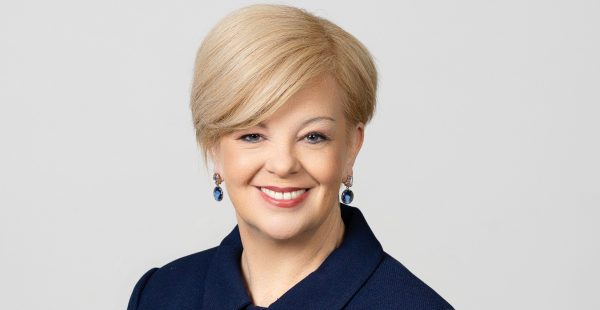FSC challenged on large licensee cost savings claims

The Financial Services Council (FSC) has been challenged on its financial advice Green Paper claim that practices can save $70,500 by aligning with larger licensees, with specialist outsourced compliance firm, Assured Support, arguing the claim lacks credibility.
In a response to the Green Paper, Assured Support has taken issue with the FSC claims supporting the cost-effectiveness of large licensees, arguing that the Green Paper is in parts, over-reliant on survey data and consultant modelling, without peer review of independent verification.
It then cites the following examples:
- The claim that licensed practices save $70.5k annually (p.11) lacks sufficient cost modelling transparency.
- The assertion that underinsurance is widespread is supported by adviser self-reporting of PI knowledge gaps, not direct audit data (p.25).
- Statements such as “self-licensed firms are twice as likely to have undergone remediation” (p.14) require more robust causal attribution.
The response also takes issue with the FSC Green Paper assertion that the shift towards self-licensing may reflect frustrations with licensee fees, perceived inflexibility and the uneven distribution of reputational risks associated with larger licensees.
“To frame the exodus as primarily about ‘fees and flexibility’ downplays the systemic cultural and ethical failures of large licensees and risks repeating history by ignoring the proper drivers of structural change,” it said.
The Assured Support response defends the validity of self-licensing and questions the FSC’s Green Paper $70,500 annual saving claim, stating that while, at face value, the figure appears to demonstrate the benefits of remaining with a licensee structure it is “problematic on several fronts”.
“First, no assessment of savings can be credible without simultaneously accounting for the cost of authorisation, the fees and charges that practices pay to their licensees for the right to operate under their AFSL,” it said.
“To present a gross figure of ‘savings’ without netting off the costs of participation is, at best, incomplete. At worst, it risks misleading stakeholders into believing that licensees deliver financial benefits where, in reality, the net outcome may be far less favourable.
“Second, any calculation of ‘average savings’ presupposes that practices are receiving comparable services, measured against a common baseline. The reality is that licensee services vary widely in scope, quality, and value, from compliance oversight to technology, training, and product distribution.
“Without clarity on what services were included or how costs were standardised, the claim of an industry-wide average saving lacks rigour. For some practices, the support provided may be indispensable and cost-effective. For others, particularly larger or more self-sufficient firms, the services may duplicate existing resources or add little value.
“Finally, the analysis ignores the opportunity cost and risk profile of licensing. Any honest assessment of value must consider not only direct costs and services but also the commercial, regulatory, and reputational risks associated with licensee structures. Advisers tied to licensees face restrictions on flexibility, exposure to collective compliance failures, and reputational harm from misconduct within their licensee group. These factors represent real costs that diminish, or in some cases outweigh, any claimed economies of scale,” the response said.











Yep the FSC telling lies again to feather it’s own nest.
Big Licenses like the Banks Fee for No Service, fee theft scandals. Plus $$$billions of failed or frozen vertically owned MIS.
Sequoia’s Venture Egg cold calling cookie cutter sales with Shield & First Guardian MIS $1.2 Billion fraud & failure.
Yep those big licenses really do such a great job. NOT
FSC are compulsive, conflicted LIARS.
The large dealer groups are dinosaurs, from a different era. They have no place in the future of our profession. All the best advisers are shifting to self licensing, and reaping the rewards of lower costs, less risk, more flexibility, client friendly processes and easier transfer when it comes time to sell.
The FSC knows this. The green paper is an embarrassing farce which reeks of desparation.
Yes there are some extra costs and work involved, but this is more than offset by larger time and cost savings in other areas. If you have a half decent practice, do yourself a favour and speak to one of the many compliance consultants who can help set it up and provide the ongoing support necessary.
Well said, similar experiences.
Wow! Where do I sign? Nice easy $70k in the bag if I go self licensed to large licensee. Beam me up, Scotty.
Might actually help pay the cslr costs though…
Further proof advisers need self regulation. Professionally qualified advisers do not need the AFSL system and do not need the FSC spitting their rhetoric all in the name of self interest. Not only that, a lot of licensee are now listed on the ASX, so not only do advisers need to meet the costs of regulation, they need to meet the expetant returns of shareholders, to clip the ticket.
If you want to talk about the cost of advice, abolishing the AFSL system should be number one for reducing costs. Think about the total amount paid in licensee fees eac hyear which could be re-directed to a new industry body to handle compliance and oversight. Advisers could fund the CSLR for about $100m a year, fund an industry body and stil have plenty of change left over.
Big licensees treat every adviser as they would a common thief’s they cater for the lowest possible denominator so as to avoid an enforceable undertaking or investigation by ASIC, so they load up advisers with compliance upon compliance and restrict the adviser from doing much at all.
Run your own licence, you know you’re honest and will do right by your clients, much lower compliance costs and you only have to follow ASICs rule book…much lower costs.
If I was a client, I’d prefer to have my adviser being a part of a big licensee.
At least (in my opinion) would have a better chance of loss recovery before the CSLR kicks in.
I thought the same thing. However, when I wrote to my clients to explain that I had gone self licensed, I was flooded with congratulatory emails and positivity. Even a referring accountant said she was happy and likely to refer more. I didn’t get a single question or hint of concern. Other advisers have told me the same thing. Turns out that fear is completely unjustified.
So your against personal accountabilty. You’d prefer the Adviser to pack up shop and walk down the road and start operating again whilst the Licensee merely cops slap over the wrist.
My experience being self licenced and recently being Audited by ASIC is as follows. Many advisers don’t realise that large licensees often benefit from complexity. The more fee disclosure forms, processes, and compliance requirements that exist, the more staff are needed to manage them. In turn the higher the fees these licensees can justify charging. In other words, red tape isn’t a burden for large AFSL holders; it’s a business model.
I’ve personally sat in rooms with the biggest dealer groups, face-to-face with ASIC staff. When ASIC asked what impact new legislative requirements would have on consumers and the cost of advice delivery, compliance managers either claimed “none” or “no impact.” Each time, I was staggered… because at the same moment we advisers are drowning in duplicated processes and pointless red tape.
For years, I believed our interests were aligned, that large dealer groups were representing us advisers, and by extension, advocating for better outcomes for Australians. But since becoming self-licensed, it’s become clear that the very reason advisers are buried in compliance, and everyday Australians are priced out of quality advice, is the behaviour of this conflicted licensees model….. regardless of whether they are tied to product providers or not.
If you care about the future of advice in Australia, and the accessibility of advice for Australians, the best step you can take is to become self-licensed. As a self licenced Adviser recently having some ASIC dealings, it is tens of thousands of dollars cheaper and I can guarantee you won’t look back. From a time perspective, yes it compares to a couple of intenstive clients but the benefits for yourself and all Australians far out weigh it
I agree with everything you said, except the last bit. By freeing ourselves of the inflexible, large dealer group, we were able to shift to better software, which has reduced our risk and dramatically improved our efficiency. We can also tailor our own CPD instead of attending countless mind-numbing, compulsory PD sessions, which were largely bloated and compromised by product providers. As a result of this, our capacity has increased by about 10%. As for FSC’s bogus $70K claim, it is so far off the mark it’s not funny. We spend around half of that to run our licence. This includes our compliance consultant, PI cover, financial auditor, software, product research and the extra cost charged by our accountant due to more complex financial statements.